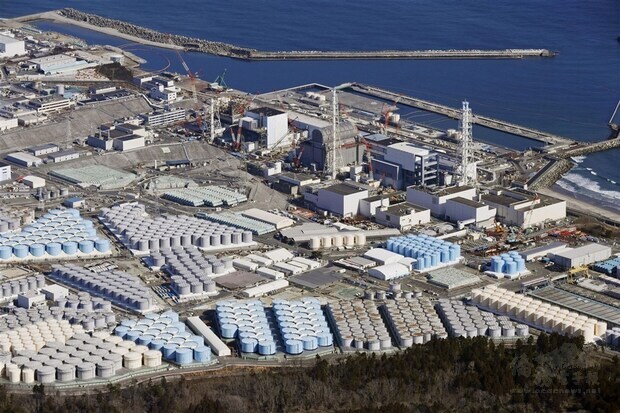
Taipei, April 15 (CNA) Taiwan's Ministry of Foreign Affairs (MOFA) has made a "solemn representation" to Japan over its decision to dump treated nuclear wastewater into the ocean, following criticism from Taiwan's main opposition party and environmental groups over the government's initial statement on Tokyo's plan.
At a regular press briefing on Thursday, MOFA spokesperson Joanne Ou (歐江安) said the ministry has lodged a "solemn representation" concerning Japan's recent decision, and conveyed the concerns of different groups in Taiwan to the Japanese side.
During the briefing, Ou was again asked by reporters to respond to Tokyo's announcement on Tuesday that it plans to release more than 1.25 million tons of treated wastewater from the disabled Fukushima Daiichi nuclear plant into the Pacific Ocean in around two years.
The wastewater was used to cool melted fuel in three nuclear reactors which were damaged during a major earthquake in 2011 and as such is contaminated with radioactive materials.
As the water continues to accumulate, the plant's storage capacity is expected to run out as early as the fall of 2022, prompting Tokyo to take action, according to media reports in Japan.
MOFA's initial reaction to the announcement on Tuesday was that it is "highly concerned" with the plan, which the main opposition Kuomintang (KMT) slammed as "too soft."
In a statement issued Wednesday, the KMT called on the administration of President Tsai Ing-wen (蔡英文) to lodge a "solemn protest" instead of just being "highly concerned."
Fai Hrong-tai (費鴻泰), the KMT caucus whip at the Legislative Yuan, said during a press conference at the time that the party's lawmakers plan to submit a resolution on Friday, demanding that the government take a tougher stand on the issue.
The Su'ao Fishermen's Association in eastern Taiwan and the National Nuclear Abolition Action Platform (NNAAP), which is made up of more than 100 groups, have also objected strongly to Tokyo's plan.
Ou reiterated that Taiwan's Atomic Energy Council has objected to the plan to dump wastewater and asked the Japanese side to provide updates in a transparent manner for future scientific examination.
Japan's plan would impact the ocean environment, ecological conservation and the health of the Taiwanese people, she said.
The Japanese side has informed Taipei it understands Taiwan's demands and position relating to the issue, Ou added.